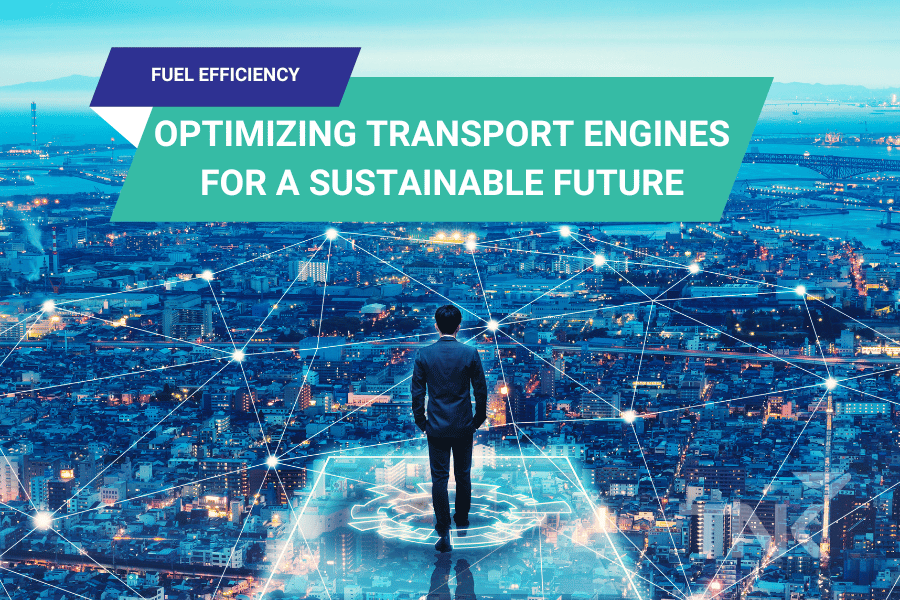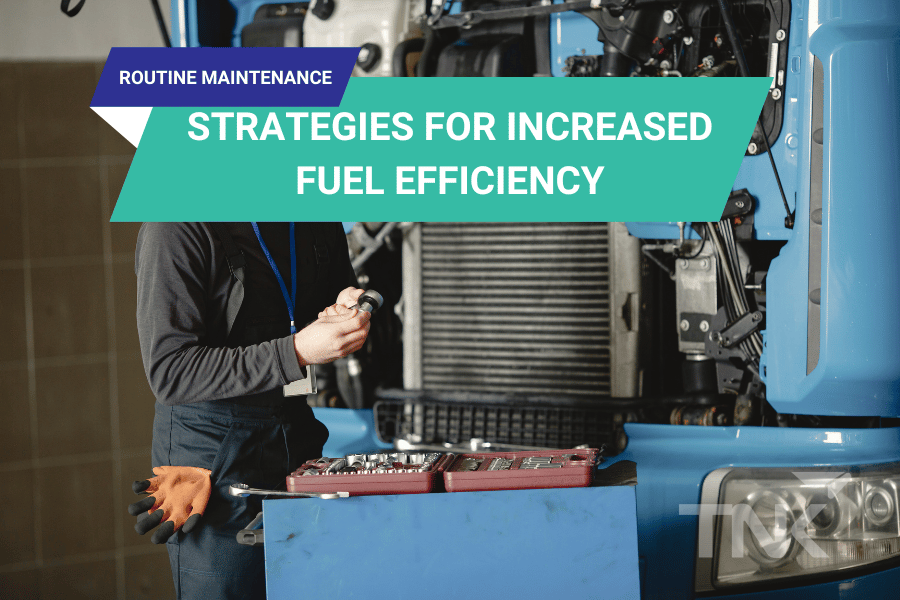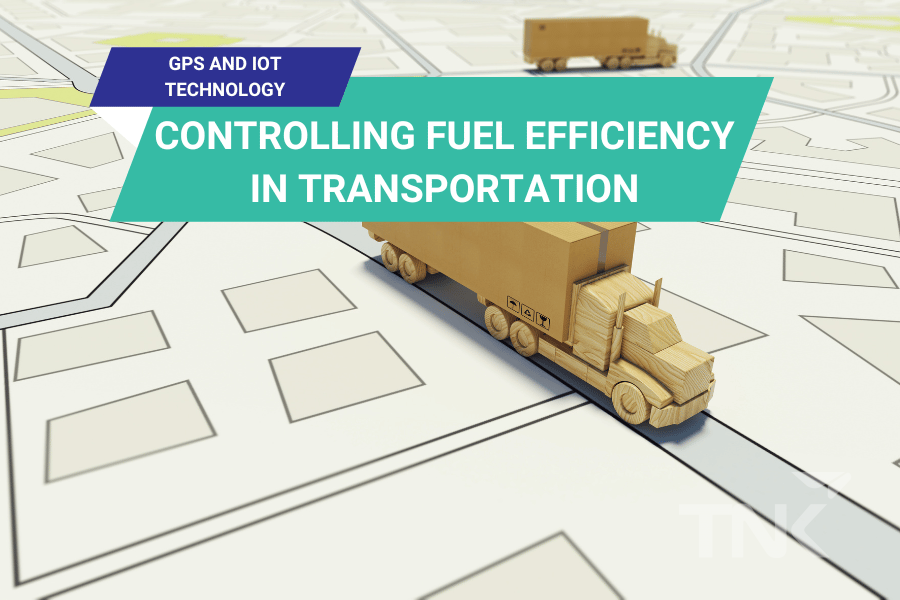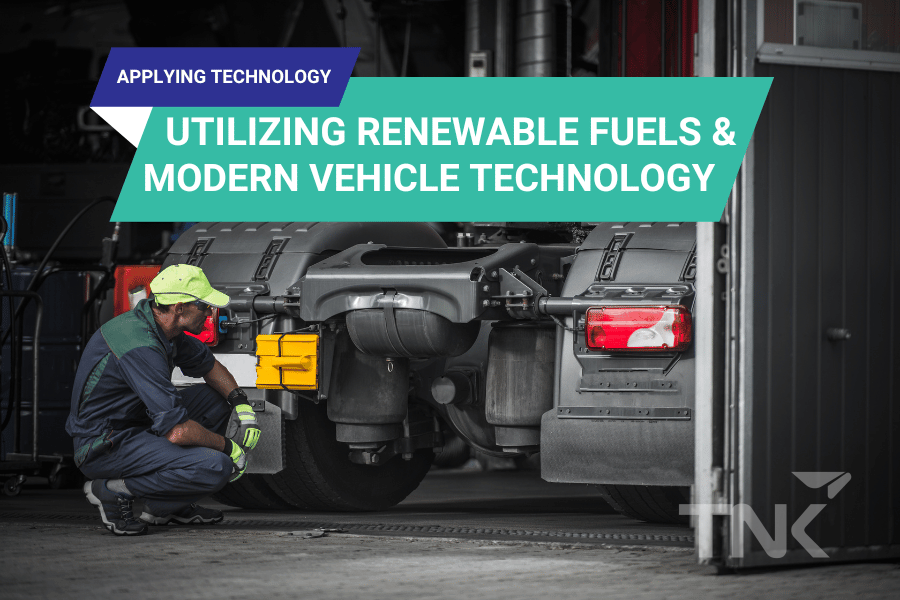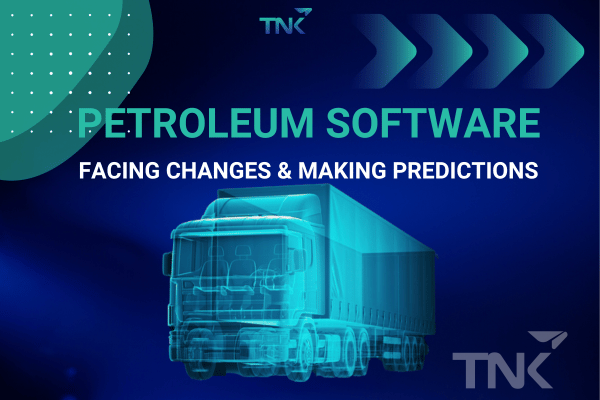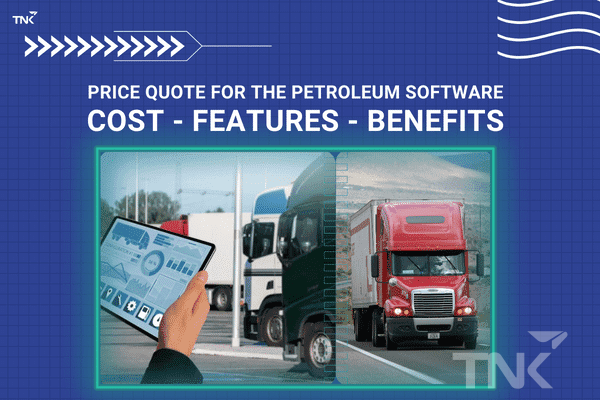Every year, the transportation industry burns billions of liters of fuel and at the same time produces large amounts of harmful emissions. To face the challenge of climate change and finite fuel supplies, optimizing fuel efficiency becomes increasingly important. In this context, the shipping industry is transforming and looking for new strategies to reduce its environmental impact and reduce operating costs.
Fuel Efficiency – Optimizing Transport Engines for a Sustainable Future
Today, the transportation industry is undergoing a comprehensive transformation, with the emergence of transportation software that helps businesses easily manage fleets and vehicle journeys. Petroleum software helps monitor the amount of gasoline imported and exported from the fuel tank. In particular, fuel efficiency management becomes the center of attention and is not primarily about saving operating costs. It is also closely related to the goals set by the international community to reduce greenhouse gases and keep fuel resources limited.
That’s why truck manufacturers focus on developing smart and efficient engines, using advanced technology to measure and optimize every drop of fuel. Some notable advances include automatic engine management systems, smart sensors and new weight-reducing materials. At the same time, electric vehicles and renewable fuels are also becoming an important part of transportation infrastructure, promising high efficiency with minimal environmental impact.
So let’s explore with TNK and “dig deep” into the detailed strategies and ways businesses are trying to bring the transportation industry into a green and sustainable future. From management and driver training to the integration of information systems and artificial intelligence, each aspect contributes to our common goal: building a fuel-efficient transportation system. materials and reap many benefits for both the environment and the economy.
Regular Maintenance – Strategy to Increase Fuel Efficiency
Fuel efficiency not only depends on the quality of the fuel but is also closely related to the maintenance and maintenance of your vehicle. Regular maintenance not only keeps the car running strong, but also helps save fuel and reduce emissions.
Check Tire Pressure Periodically
Tire pressure has a significant effect on fuel consumption. Underinflated tires not only increase resistance and heat up quickly, but also increase fuel consumption. Performing regular inspections and keeping roofing pressure at recommended levels can help reduce fuel consumption and extend tire life.
Change Oil Correctly and According to Periods
Oil plays an important role in reducing friction and protecting the engine. When oil is dirty or old, the engine has to work harder to achieve optimal performance, which leads to increased fuel consumption. Changing oil properly and periodically will help ensure the engine operates efficiently, reduces friction and saves fuel.
Check Cooling and Air Conditioning Systems
The cooling and air conditioning system affects engine power and fuel consumption. When this system is not working properly, the engine may work harder, leading to increased fuel consumption. Regular inspection and maintenance help ensure cooling and air conditioning systems operate effectively.
Replace Air and Oil Filters
Application of GPS and IoT Technology: Controlling Fuel Efficiency in the Transportation Industry
Fuel efficiency is becoming a hot spot in the transportation industry, and the combination of GPS and Internet of things (IoT) technology is opening up new opportunities to monitor and optimize fuel usage.
Track Your Route And Speed
GPS technology allows transportation businesses to accurately track the routes their vehicles have traveled. Combined with speed information, they can determine which sections of the road are consuming more fuel due to speed fluctuations and adjust routes to optimize fuel efficiency as much as possible.
Speed Control Management
The combination of GPS and IoT helps create a smart engine management system, capable of monitoring vehicle speed and performance. This data can be used to issue warnings or automatically reduce speed when necessary, helping to minimize fuel consumption.
Optimize Engine Working Mode
IoT sensors are integrated directly into the engine to monitor performance. Through analyzing data on pressure, temperature and other parameters, the system can recommend optimal working modes to reduce fuel consumption.
Integration With Transportation Software
Through integrating GPS and IoT data into transportation software, businesses can monitor fuel efficiency directly from the dashboard. This helps them quickly identify and accurately solve problems related to fuel consumption.
GPS and IoT technology not only helps transportation businesses control fuel efficiency but also brings cost and environmental benefits. Through this intelligent combination, the transportation industry is entering a new era of performance management, while creating a smart and sustainable transportation model.
Driver Training and Changing Driving Attitudes
Fuel efficiency depends not only on technology and engine management but also largely on driving attitude. Driver training and changing driving attitudes can contribute significantly to reducing fuel consumption and keeping the vehicle running efficiently.
Training on Fuel-Saving Driving Techniques
An important part of driver training is helping them understand fuel-efficient driving techniques. Techniques such as keeping a steady speed, avoiding sudden acceleration and using engine braking can help reduce fuel consumption significantly.
Changing Driving Attitude
Driving attitude plays an important role in determining fuel consumption. Training drivers to slow down, avoid sudden braking, and maintain a steady speed can have a positive effect on fuel consumption.
Using Support Software
Modern gasoline software is a useful tool in monitoring and evaluating driving behavior. Features such as driving reports, trip-by-trip fuel consumption tracking, and driving technique assessments can help drivers self-monitor and improve their driving behavior.
By combining driver training and changing driving attitudes, transportation businesses not only help reduce fuel costs but also contribute to environmental protection. In this way, optimizing fuel efficiency is not just an individual task but an active collaboration between the business and the driving team.
Using Renewable Fuels and Modern Vehicle Technology
In the context of increasing environmental protection and fuel efficiency optimization, the combination of using renewable fuels and applying modern vehicle technology becomes an effective means to maximize performance. fuel for a new journey.
Renewable Fuel for High Fuel Efficiency
Using renewable fuels such as Biodiesel, ethanol or gas from organic waste not only helps reduce CO2 emissions but also provides a clean fuel source with significant fuel savings. Switching to renewable fuels can be a big step toward boosting fuel efficiency.
Modern Vehicle Technology Increases Performance
Modern vehicle technology brings many improvements to fuel efficiency. GPS and smart sensors can optimize driving routes to reduce congestion and optimize fuel consumption. Hybrid technology and electric vehicles are also notable solutions to reduce fuel consumption.
Speed Management and Cruise Control
Features such as intelligent speed management can help maintain a steady speed and avoid sudden situations, helping to reduce fuel consumption. Smart cruise control also helps maintain a safe distance and optimize the journey.
Integrating Modern Petroleum Software
Specially programmed HCM petroleum software can provide detailed data on fuel usage, thereby generating reports and fuel performance assessments. These features help businesses track and improve fuel efficiency in a targeted way.
Conclude
With the above information, we know that on the road to outstanding fuel efficiency, four unique enhancement strategies are the key to unlocking the door to savings and sustainability.
Improving driving skills, using renewable fuels and modern vehicle technology, smart speed and trip management, along with the support of transportation and fuel software – all blend into a flexible and powerful system that helps shape a clean, green and sustainable future for the transportation industry.
TNK Technology and Solution Company Limited
Address: 137 Luy Ban Bich, Tan Thoi Hoa Ward, Tan Phu District, HCMC
Hotline: 028 3961 6069 – 0978 700 220
Email: lienhe@tnk.com.vn
Website: tnk.com.vn
– Application of GPS and IoT technology: Controlling fuel efficiency in the transportation industry
– Driver training and changing driving attitudes: An important step in optimizing fuel efficiency
– Use renewable fuels and modern vehicle technology: Put fuel efficiency on the new road
– Environmental protection
– Enhance sustainability
– Regulatory compliance
– Increase reliability and work efficiency
– Support journey management plan.

Working in a unit specializing in providing support software for the TNK transportation sector. With a deep understanding of the industry and proficiency in technology, we are committed to providing reliable information and solutions, helping readers feel confident and secure in the process of learning and applying technology. into the transportation sector.

